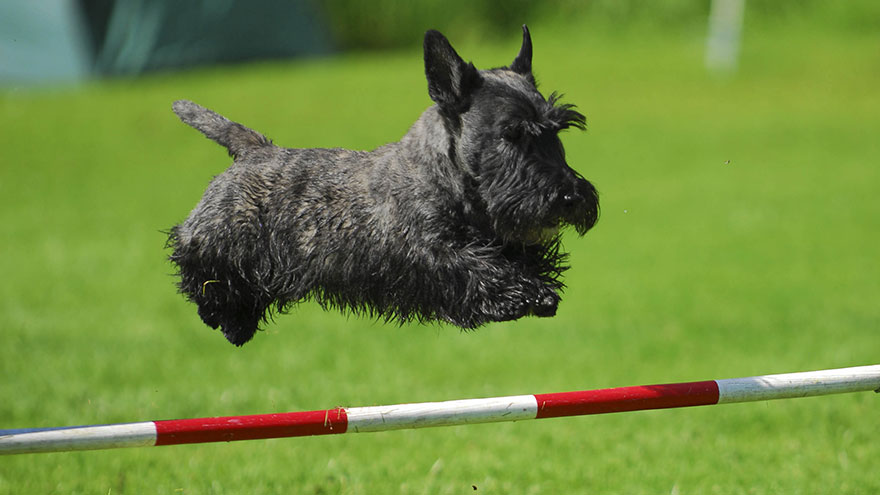Scottish Terrier Health Guide
This is a generally healthy breed of dog, but the Scottish Terrier can be prone to just a few medical conditions. The new owner should know about and ask about these, beginning with von Willebrand’s disease.
This is an inherited blood disorder in which the dog is missing a substance that helps blood clots to form. The disease is similar to hemophilia in humans.
Health Problems in the Scottish Terrier
Dogs that have a higher incidence than normal are Scotties, German Shepherds, Golden Retrievers, Poodles and few others. Owners will notice that bleeding continues after an injury if the pet has this condition.
Nosebleeds or gum bleeding may also develop, even with injury. Blood in the urine or in the intestines can be one of the more serious developments of von Willebrand’s disease. Breeding stock should be tested before mating and puppy buyers should ask the breeder if von Willebrand’s disease test results for the parents of a litter are available.
In addition to being susceptible to von Willebrand’s disease, the Scottish Terrier may develop skin problems and flea allergies, epilepsy, and some jawbone disorders. Scotties are known to scratch and bite at their coat and skin to relieve an itch or to get rid of a flea.
However, this can go beyond mere scratching to the point at which the dog loses some of its coat and causes injury to the sensitive skin underneath. Some experts recommend a supplement of the correct type of fatty oils to help relieve this problem.
Craniomandibular Osteopathy is a non-cancerous growth of bone on the lower jawbone. The first signs appear between three and four months of age, when the affected puppy shows discomfort while chewing, or when the puppy’s mouth is being examined. An experienced breeder and/or veterinarian can detect the condition by feeling the dense, hard, and rough surface that is caused by the disease.

X-rays can be taken to make the appropriate determination. Other signs are that the puppy may run a fever and be lethargic. Mild cases may be mistaken for teething problems or symptoms of a viral infection.
You should consult your veterinarian immediately if you suspect this problem. If you are in the beginning stages of choosing a puppy, be sure to ask the breeders about this condition. Even if breeding parents do not show signs of this disease, they may still be carriers of the gene that leads to it.
The breed is also prone to Scottie cramp, a minor condition that may cause difficulty in walking. Cerebellar abiotrophy, a rare, slow-to-progress neurological disease that causes loss of coordination, has also been found in the breed.
Many owners of purebred dogs have started their puppies with a diet of fresh foods, or continued this after finding that the breeder is feeding his dog’s fresh meats, vegetables and even some fruits.
Dogs have a unique set of requirements for what they eat. Many dogs do not do well with cheaper brands of commercial foods because they cannot tolerate the high grain content of these foods.
Dogs can develop allergies to the excessive amounts of corn, wheat, and soy in the less-expensive dry foods. Since Scottish Terriers are sensitive to skin irritations and fleabites, it may be best to begin the puppy with such a natural or fresh food diet.
In addition, the feeding of cheaper foods and overfeeding the Scottie can lead to overweight. This excess weight sometimes leads to back problems in the breed.
Consult with your veterinarian and your breeder about feeding such things as fresh chicken, vegetables, eggs, and cottage cheese.
Read More About Scottish Terrier
- Scottish Terrier Breed Information
- Scottish Terrier : 10 Most Common Questions
- Scottish Terrier Training Guide
- Owning A Scottish Terrier : Breeder Recommendations

